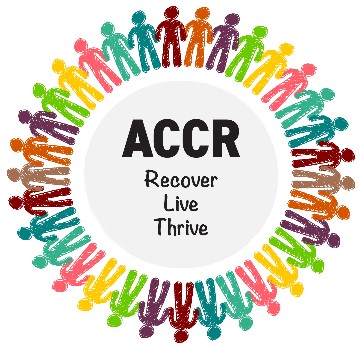Terry’s Recovery Story
What does recovery mean to you? Recovery means traveling a road that is bumpy and difficult with ups and downs as I develop go-to coping skills and support systems, but also a process that is well worth the time and energy because it offers hope that life can and will get better.
What are your go to healthy coping skills? The “go-to” coping skill I use the most is reaching out to good friends whom I know will listen nonjudgmentally. More recently, I have added getting back into therapy to work through difficulties I have been experiencing.
How did you establish a strong support system? As someone who makes friends easily, establishing positive and long-term friendships has been, and continues to be a key support system. In addition, I have also often been receptive to therapy when I felt I needed professional support.
How do you remain hopeful or find hope to stay in recovery ? Although I won’t lie but will instead that I sometimes I lose hope; and, when that happens, my spirituality is what most and enables me to stay hopeful.
My complete recovery story is below:
Anyone who knows me, even if they don’t know me well, knows that my favorite compliment to people who are nice to me is to say, “You should be cloned!” Well, one person who I don’t think wanted two of me was a psychiatrist at West Penn Hospital who told me during a 1984 admission: “People like you shouldn’t have children! Instead, “people like you” should get their tubes tied.” When I asked if he felt that way because of my blindness; my mental health issues, or both, he said that my serious mental illness is what prompted his feelings. Although my only additional response was to point out that it was just a little bit too late for “people like me” not to have children since I already had two, what I said to myself would probably have gotten me into seclusion had I said it out loud.
At that time, I heard nothing about recovery; was using West Penn’s psych unit like a revolving door, and had no idea that recovery was even possible Not knowing about recovery, I thought that taking medication; using the hospital like a revolving door and having suicidal thoughts was all life had to offer. The refrain of Psalm 22 sums up best how I felt: “My God, my God, why have you abandoned me?”
During the early 2000’s while taking training at Pittsburgh Mercy to become a behavioral health aide and a case manager aide was when I first learned that recovery even from serious mental illness was possible. Getting involved in a Mercy-based theater group and later using my creative writing skills enabled me to put recovery and wellness principles into practice.
What I would say at this point in my life is: “Although I still struggle and even though I’m more than a little bit eccentric, it really is okay to get to know and make friends with “someone like me.”
